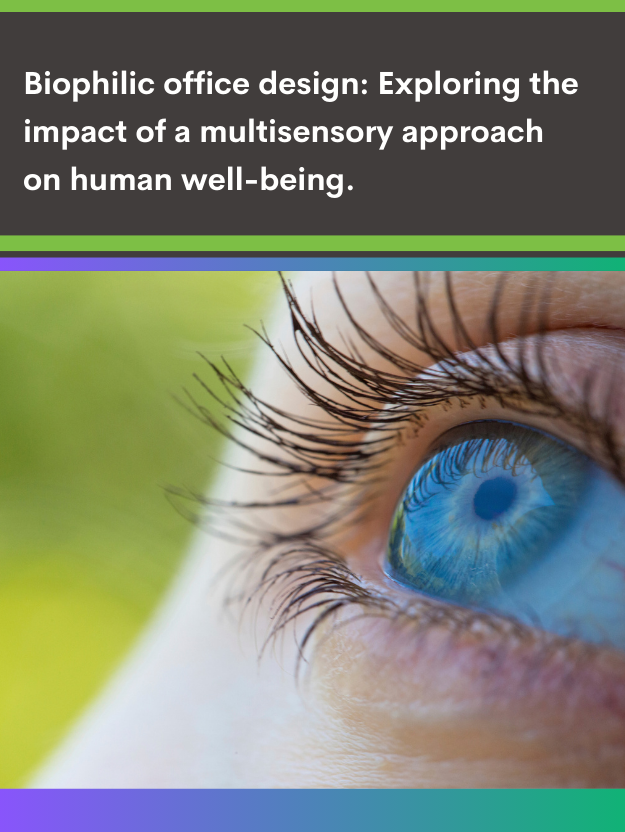Biophilic office design: Exploring the impact of a multisensory approach on human well-being.

Experiencing nature provides a multitude of health benefits. Biophilic design has emerged as a design approach that aims to reconnect occupants with the natural environment. We evaluated the impact of a multi-sensory biophilic environment on occupants’ cognitive performance, stress, productivity, mood, connectedness to nature, and attention. Thirty-seven participants in three cohorts were exposed to three biophilic design interventions (visual, auditory, and a combination (multisensory)) and a baseline condition, with weekly variations over eight weeks. A wrist-worn stress sensor, daily surveys, and scheduled executive function tasks were administered. Cognitive performance improved in all biophilic conditions compared to baseline. Most satisfaction with workplace appearance, and visual privacy was reported in visual and multisensory conditions, and stress ratings were lower in the multi-sensory condition compared to baseline. The results demonstrate that immersive biophilic environments can improve occupants’ satisfaction and cognitive performance, while reducing stress. The findings highlight the need to consider non-visual factors in biophilic design.





